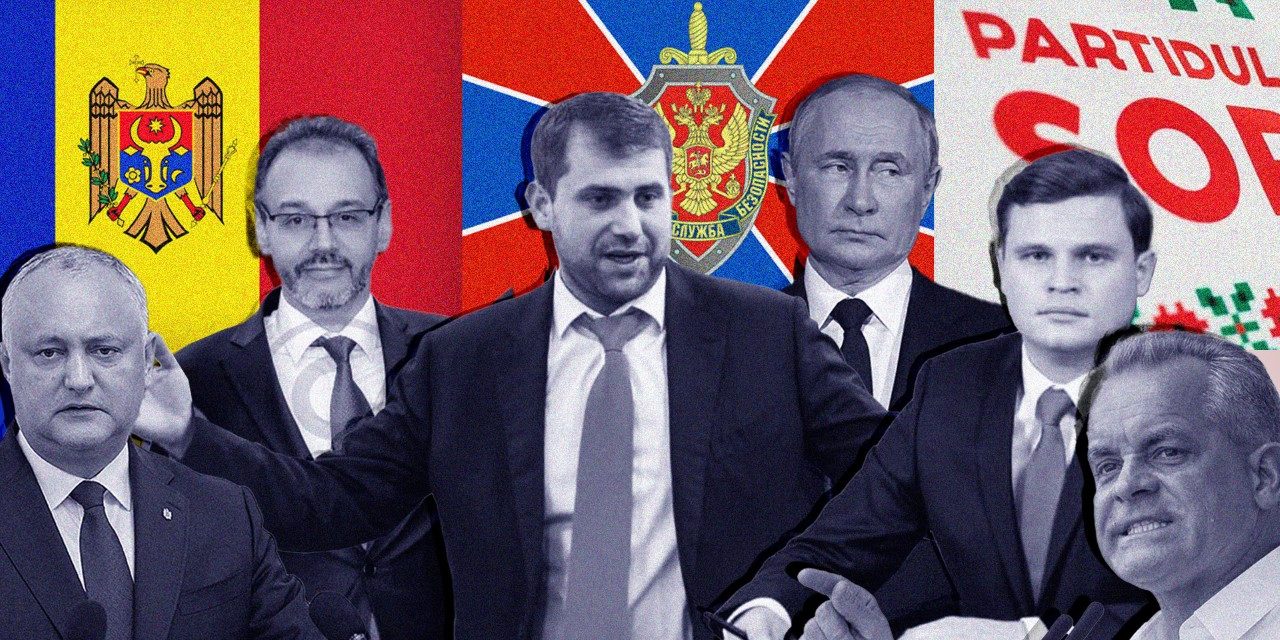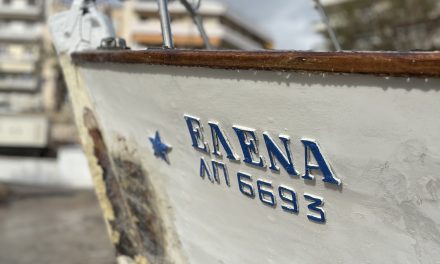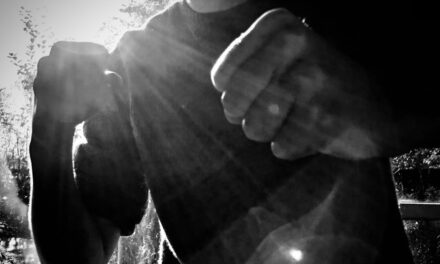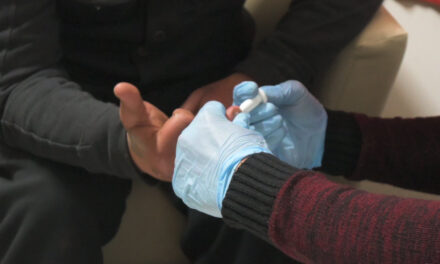MOLDOVA –– As the biggest scandal of the century unravels in Moldova, Russian-backed party Șor is working overtime to cover up their doings and try to stay out of the limelight. They wouldn’t like it if people started talking.
The Lonely but Perfect Town in the Country
Orhei has the newest roads with the cleanest streets, cheapest supermarkets called ‘Șor’ and a modern amusement park. While this town might seem boring at first sight, there is a catch. Word goes around about a corrupted party that bought the town. Seeing only Orhei having the fancy treatment is a fitting situation when looking at the chicanery and unrelenting greed the country is being overruled by.
However, this is not the only noteworthy doing by Șor. While it is true that the populist party Șor gave the people dozens of Moldovan leu and food, a fraudulent decision in 2014 resulted in the taking of one billion worth of dollars. Mastermind Ilan Shor, the leader of the party and Mayor of Orhei, fled back home to Israel and is yet to be found. Only the flashy cars and a doll-like Russian singer as wife are known about the mogul. The rest is unknown, floating in mystery. The situation even raised the eyebrows of the US and Șor was not spared with sanctions and an American detective investigation. Where is the money? What is up with the oligarchs that roam the country? And what about the black Hugo Boss plastic bags? Well, those are the million-dollar questions.
Enlarge
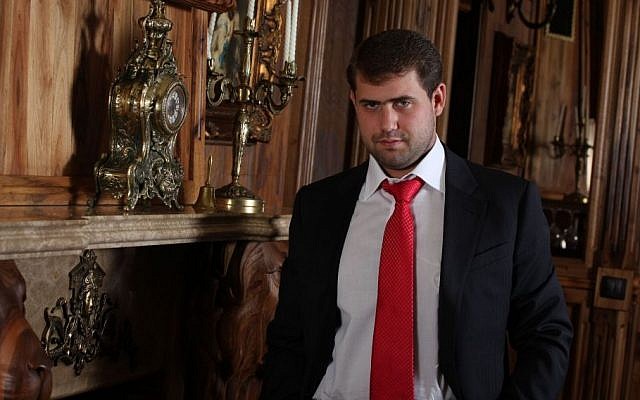
Wikimedia/CC0 1.0 Universal Public Domain Dedication
A Sham Alliance
For decades long is Moldova plagued by Russian security services, often referred to as the FSB, and a fistful of oligarchs working quickly. However, the dirty Kremlin money channeled through various organizations and companies, does not only end up in Moldova. Independent researcher Cristian Vlas describes that even among pro-European politicians, corruption was extensive all the way from Russia. The FSB even was found in The Netherlands at the beginning of 2022. Twenty official covers were deported. The list is growing and includes countries such as Germany, Austria, and France. For the ones looking for a more extreme case: Hungarian ex-MEP Béla Kovács is an awfully clear case of a Russian secret agent. Hold that thought about the FSB.
Governmental circles were swayed by promises of future employment in high-ranking enterprises, business compromises, privileged positions in state contracts, and blackmail. Anything to make corruption a common practice. Vlas explains: “This was to either muddle the waters of anti-corruption and reform agendas, or to make ‘business as usual’ a common practice for most European governments.”
Exploiting the Poor
On September 18, around three o’ clock when the afternoon light washes down on the streets, a protest by Șor was organized in Orhei, capital of the party. Organizers were waiting next to the minibuses, also known as a “marshrutka”, to pick up a bunch of protesters. Rumor has it that people are made to protest the current president, Maia Sandu. People were informed they would be driven to work and were forced to sign a list. Three undercover journalists working for investigative news site Ziarul de Gardă made it just in time to get a ride on the bus. Around midway, one of the minibus drivers began calling other drivers to find out where the police officers were stationed. More and more minibuses were seen travelling to the capital. The cops even pulled-over some minibuses. When the undercover “protesters” arrive in Chisinau, they notice that dozens of minibuses brought the scheduled people to the Șor Party demonstration. The crowd was stuck at the intersection of Mihai Viteazul Street and Ștefan cel Mare i Sfânt Boulevard for over an hour.
Enlarge
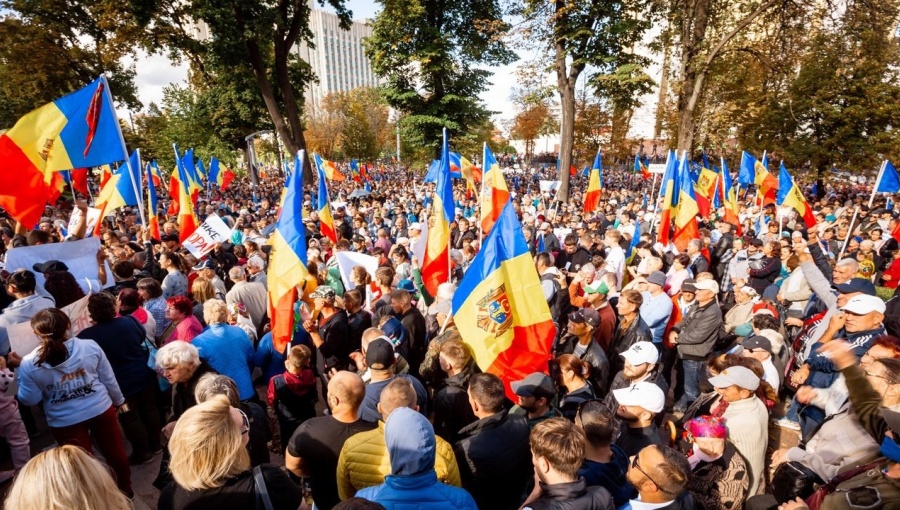
partidulsor.md
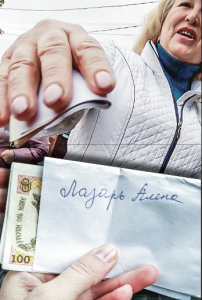
The 200 leu that was given to Natalia Zaharescu. (Ziarul de Garda)
The crowd is finally let into the boulevard at 15:00, just as the demonstration is about to begin. They all started marching towards the Parliament, and as they got near, the people grew disorderly and began to chant slogans against the government: “Down with Maia Sandu!”, “Resign!”. When they get to their destination, some hunt for work and then go to the park to find a spot in the shade. Even a man from Orhei set up his folding chair to rest for a bit. A woman tells one of the undercover journalists, Natalia Zaharescu, that she has been to protests four times and has received money for it. “For today, 400 leu – about €20 – were promised,” she continues. “Know, that they may not deceive you. I’m telling you; I’ve worked in this system, and I know.”
Ziarul de Gardă asked the deputies and leaders of the Şor Party questions about the remuneration of the protesters. They all denied that people are being brought to organized protests and paid for it. They claim that, although affected by the high prices, against which they protest, those who come from various localities of the Republic of Moldova would rent the minibuses with their own money to come to Chisinau.
One week later, a woman rings the doorbell. Natalia opens the door and the woman who organized the protest hands over 200 leu. As it turns out, the protesters who are living in poverty, were exploited with their presence. The payment? Bottles of water, food or some good ol’ banknotes, enough to pay the bills. Șor has a lot to worry about while trying to gain popularity.

Igor Boțan, director of the Association for Participatory Democracy. (Mirosława van der Boom)
Oligarchs Flirting with Corruption
In this country you can find the traces of different political eras. Igor Boțan, director of the Association for Participatory Democracy explains the landscape. There was a period of a so-called national rebirth. Intellectual politicians promoted left-wing ideals to help Moldova after independence in 1991. It quickly became clear that the Soviet Union robbed the country of money and other resources. “The lack of experience from the politicians made sure that they couldn’t run the country for long,” he says.
Second trace: pro-Russian groups that still romanticize the USSR. However, the younger generation doesn’t carry that nostalgia. The socialists in Moldova are supporting Putin’s moves. Former President Igor Dodon, who ushered in the oligarch period, is a prime example of this. Dodon carried his own logic: it does not matter the devil is imperfect, it matters that angels have spots on their wings. When he was sworn in on 23 December in 2016, he made sure the people saw him as an angel. Promises for a good time were made. Boțan shakes his head. “Only God knows when the good or bad times will happen.”
He accomplished this by attempting to resolve the Transnistrian issue while preserving friendship with Ukraine and therefore refusing to recognize Crimea as Russian. Dodon even
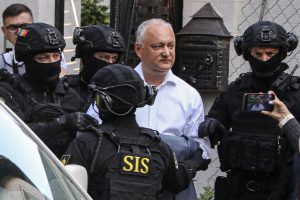
Igor Dodon arrested on 24 May, 2022. One day later the $1 million bribe. (Aurel Obreja/AP)
went so far as to advocate for a better relationship with the EU. But the spots on his wings were taking a secret bribe of up to $1 million from oligarch Vladimir Plahotniuc, the former leader of the Democratic Party. Later it would be known that Plahotniuc played a role in the ‘Heist of the Century’ along with Ilan Shor. The ex-president reportedly requested this money to support the Socialist Party’s current expenses, including personnel salaries. This led Moldova into a constitutional crisis in 2019. Again, hold that thought for a minute. Even though Dodon supports the EU, he is very keen on keeping good relations with Russia. According to a report put out by RISE Moldova and the Dossier Center, he got 20 million Russian rubles from Moscow, which is about 300 grand. The money was transferred from Russia to the Moldovan-Russian Business Union’s bank account over a seven-month period between October 2021 and April 2022, continuing well even after the Russian invasion of Ukraine began.
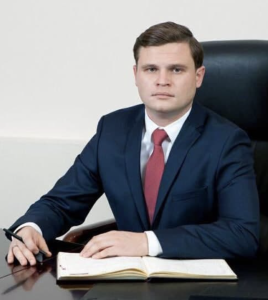
Vadim Yurchenko, a secret service agent whose job it is to keep an eye on the company’s overseas holdings. (RISE Moldova)
Read more about Transnistria here.
Remember the FSB? In 2016, Dmitry Milyutin – a General in the Security Service and the deputy chief of the Department of Operational Information – was appointed to lead FSB operations in Moldova. Igor Chaika, the son of Russia’s former prosecutor general and a Russian businessman, was thought to have been Milyutin’s go-between with Dodon for most of his time in the position. To make it more clear how intertwined the FSB is with Dodon and politics, Vadim Yurchenko, who is Dodon’s deputy at the business association, is close with the Russian security service and was sent from Russia, RISE Moldova also said. This isn’t the only role the FSB has played so far. After Igor Dodon his scandals, Dmitry Milyutin moved on to Ilan Shor as a new pet for Russia to fund the Șor Party. It shows that Shor is on FSB’s payroll and a significant figure in Moldova’s pro-Kremlin giants. The FSB even has a nickname for Shor: ‘the young one’.
Hugo Boss and the Trash Bags
Enlarge

Besides protesters being paid, more recent traces of corruption can be found. Let’s rewind back to October 2022, when police went after members of the Șor Party in cities across the country.
At around five in the morning, a mysterious figure was seen heading north while carrying a bag. Two hours later, the individual was nabbed while making a direct payment to a high-ranking member of Șor’s district.
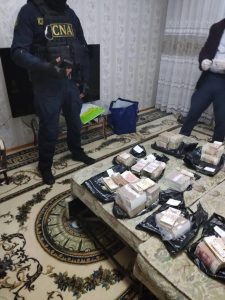 As a result of raiding: twenty black Hugo Boss bags with the names of different districts were found to contain about 3.5 million leu – about 170,000 dollars. It’s a full circle about the Șor Party-organized paid protesters as the money in the black bags were meant to pay those people for each day of protesting. A little earlier that year, in July 2022, a criminal case was reopened against the Șor Party for illegal financing. Prosecutors say that the group took the money from a criminal organization on purpose to plan protests. American officials say that missing politician Ilan Shor got help from Russia in beginning of June 2022, so that his party and other billionaires could create havoc in Moldova and to stop the people from supporting Europe.
As a result of raiding: twenty black Hugo Boss bags with the names of different districts were found to contain about 3.5 million leu – about 170,000 dollars. It’s a full circle about the Șor Party-organized paid protesters as the money in the black bags were meant to pay those people for each day of protesting. A little earlier that year, in July 2022, a criminal case was reopened against the Șor Party for illegal financing. Prosecutors say that the group took the money from a criminal organization on purpose to plan protests. American officials say that missing politician Ilan Shor got help from Russia in beginning of June 2022, so that his party and other billionaires could create havoc in Moldova and to stop the people from supporting Europe.
Lastly, the secret bribe between Dodon and Vladimir Plahotniuc was built around a video footage from a meeting in June 2019 between former president Dodon and then-Democratic Party leader Plahotniuc. After three years, the process began on May 25, 2022. Plahotniuc is seen giving the former president a black gift that they call a ‘bag’. Dodon, refuses to take the gift and instead asks Plahotniuc to give it to an unnamed person. According to investigators, it is evident from the dialogue that the bag includes money meant to fund the Socialist Party. Dodon even brags about his deep ties to Vladimir Putin while the hidden camera was rolling.
The Money Heist of the Century
It’s what everyone in Moldova has heard of. On one day in 2014, over one billion dollars just mysteriously disappeared. A confidential report by the independent U.S. investigative film Kroll explains in detail how companies and people with ties to – then 28-year-old – businessman Ilan Shor took control of three Moldovan banks from 2012 to 2014. Kroll allegedly issued massive loans to Shor-connected companies over a course of three days in November. The Kroll report ties him to several other companies as part of the “Shor Group.” These included Danmira, Davema, Caritas Group, Contrade, and Voximar.
Taking more than one billion dollars was mostly done by the method of sucking the corporate thumb. The scheme was straightforward. The banks made loans to their companies, the companies did not repay the debts, and so the banks went bankrupt at the same time. To compensate, the government decided to spend their budget money on banks that were about to go bankrupt. This resulted in the government losing a large portion of their money. For Europe’s poorest country, $1 billion was a huge cut towards the GDP of Moldova with a whopping 12% that just disappeared. To put this into perspective: imagine waking up in the Netherlands with the news that €1153 million just vanished from the national bank. Shor denied the allegations but offered to return the exact money that was stolen.
Enlarge
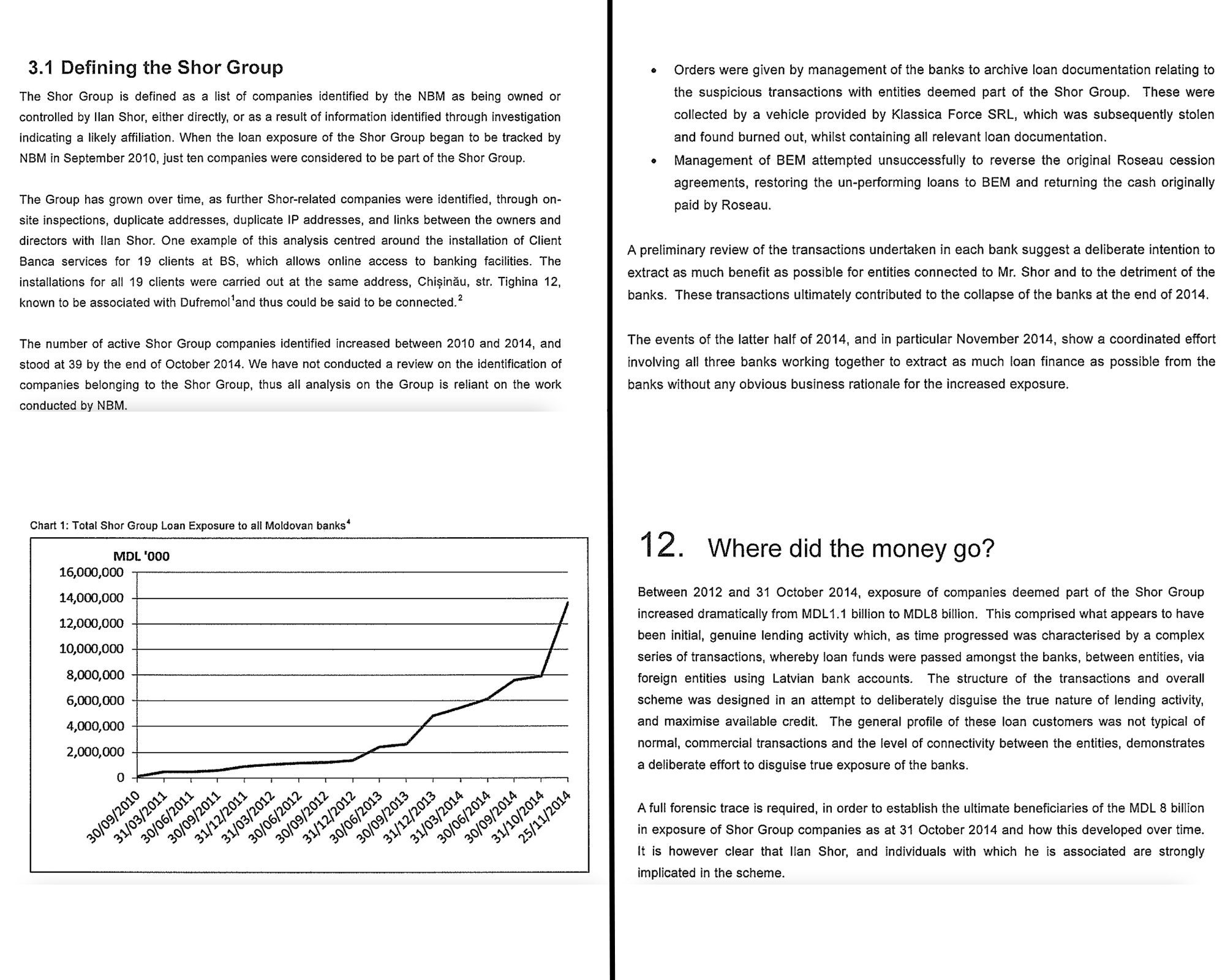
As of now, Ilan Shor faces seven-and-a-half-year prison sentence for his bank fraud only, despite all his other scandals. But it won’t be easy to catch the thief of the century and so the conundrum continues to arrest the wealthiest man in Moldova.
